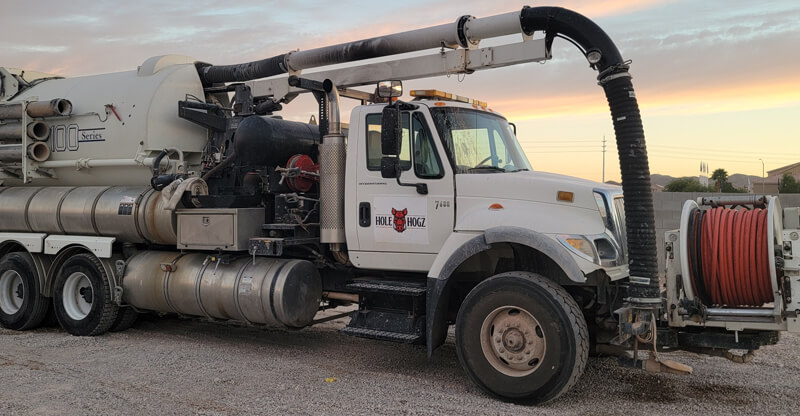Hydrovac Trucks Are The Absolute Best For Any Excavation Project
Safer, faster, better.
Posted 16:13 August 30, 2023
Last Updated 16:13 August 30, 2023

Hydrovac trucks are widely regarded as the superior method for excavation, offering numerous advantages over traditional approaches. These advantages span safety, precision, versatility, and efficiency, making them the preferred choice in a variety of industries. In this discussion, we will delve into each of these aspects to elucidate why hydrovac trucks are the best way to excavate.
Hydrovac trucks prioritize safety, which is paramount in any excavation project. Unlike traditional methods like backhoes or manual digging, hydrovac excavation minimizes the risk of damaging underground utilities, such as gas, water, or electrical lines. This reduction in accidents not only ensures the safety of workers but also prevents costly repairs and potential service disruptions to the community.
One of the primary reasons hydrovac trucks are favored is their precision. The process involves the use of high-pressure water to break up soil and a powerful vacuum system to remove it. This controlled excavation minimizes over-digging and ensures that only the necessary material is removed, reducing the potential for project delays and extra costs associated with excess excavation.
Hydrovac trucks are incredibly versatile machines. They can efficiently excavate in various soil types and conditions, including frozen ground. This adaptability is invaluable, especially in regions with diverse geological profiles, allowing for year-round excavation without needing to change equipment or techniques.
In environmentally sensitive areas, where minimizing soil disturbance and preventing contamination are critical concerns, hydrovac trucks shine. Their precise excavation techniques and containment systems make them ideal for projects near water bodies, wetlands, or areas with fragile ecosystems. This environmentally conscious approach minimizes the ecological impact of excavation activities.
Hydrovac trucks are highly efficient machines that can expedite excavation projects. The combination of pressurized water and vacuum technology enables rapid removal of material from the excavation site. This efficiency translates to reduced project timelines, lower labor costs, and decreased traffic disruptions, which is especially crucial in urban environments.
Preventing damage to underground utilities is a top priority in excavation projects. Hydrovac trucks excel in this regard by safely exposing buried infrastructure without causing harm. This feature is indispensable in urban areas with dense utility networks, ensuring that essential services remain uninterrupted.
Traditional excavation methods often result in significant soil displacement, leading to soil compaction and potential ground settling over time. Hydrovac trucks, on the other hand, minimize soil disturbance, preserving the integrity of the surrounding ground and reducing the need for extensive backfilling and compaction efforts.
Hydrovac trucks facilitate efficient material management. The removed soil and debris can be transported directly to disposal sites, minimizing the need for stockpiling on-site, which can be a logistical challenge and a potential source of pollution.
Hydrovac trucks can access confined or hard-to-reach areas that may be inaccessible to larger excavation equipment. Their compact design and long-reach hoses make them suitable for a wide range of excavation scenarios, including tight urban spaces and remote locations.
While the initial investment in hydrovac equipment may be higher than some traditional methods, the long-term cost savings are significant. Reduced project timelines, lower labor costs, and minimized damage and repairs to utilities make hydrovac excavation a cost-effective choice for many projects.
In conclusion, hydrovac trucks stand out as the best way to excavate due to their unmatched combination of safety, precision, versatility, efficiency, and environmental sensitivity. These advantages not only enhance the safety and efficiency of excavation projects but also contribute to cost savings and environmental preservation, making them the preferred choice for a wide range of industries and applications.
